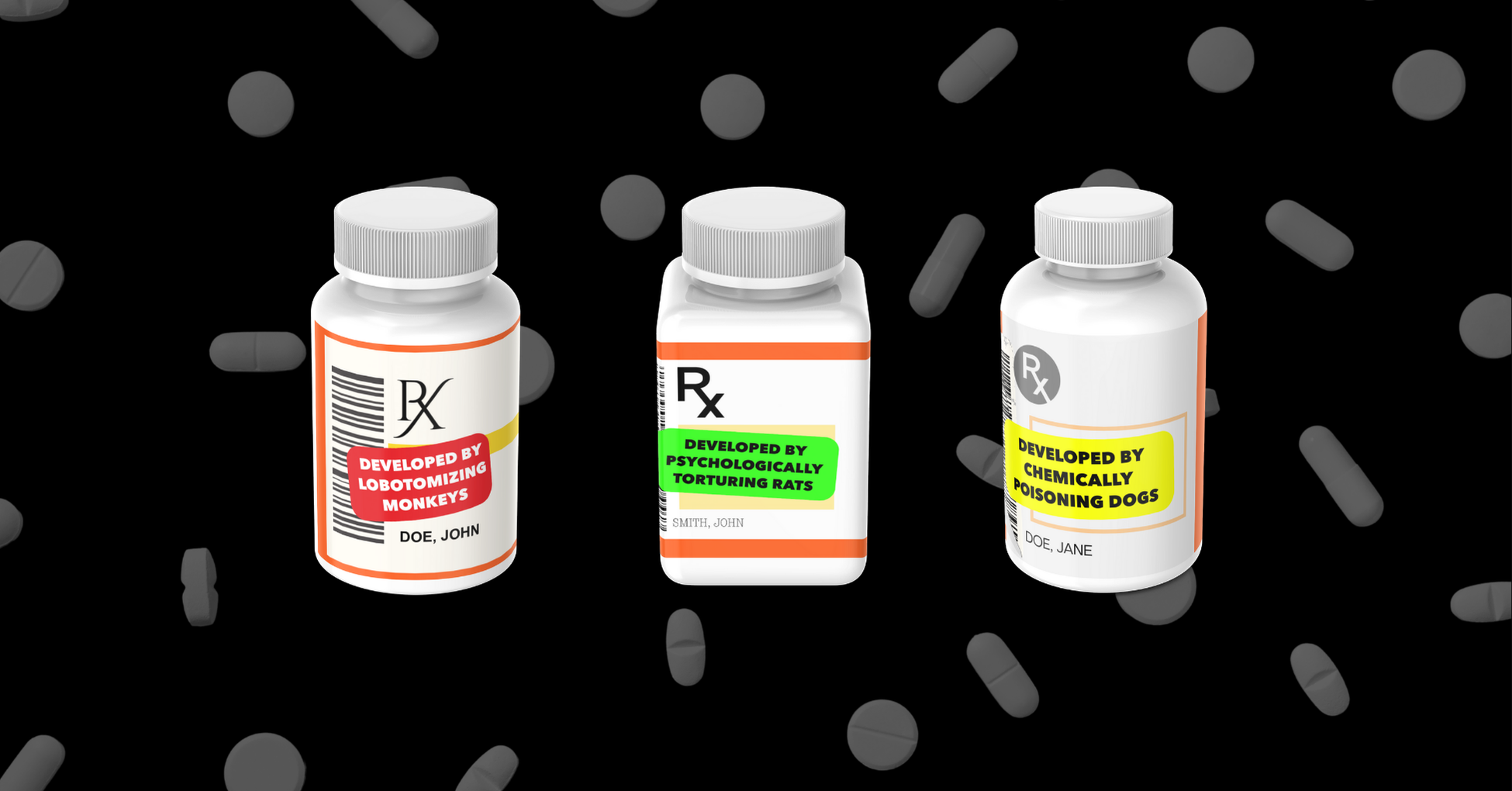
Why This Matters: Switzerland’s meat-labeling law exposes animal cruelty that’s normally hidden in plain sight, and challenges us to ask why the biomedical industry isn’t held to the same standard. Consumers deserve transparency about the violence inflicted on animals in the name of “science.”
This July, Switzerland made history. It began requiring all meat and eggs sold in the country to disclose whether the animals exploited for those products were mutilated — by having their tails docked, beaks clipped, legs severed, testicles cut off, or horns removed — while fully conscious.
Switzerland already banned these practices within its borders, but — because the country still wants to import animal products from places that allow them — lawmakers compromised by passing the labeling requirement.
It represents a historic step, and a win for consumer transparency.
Switzerland’s labels help:
pierce[] the veil of the shrink-wrapped slab of meat consumers see in the grocery store or prepared in dishes at restaurants, suggesting that meat is simply an inanimate product rather than the flesh of a once-living, feeling creature who suffered.
Simultaneously, they require the animal agricultural industry to account for specific practices that it chooses to engage in — practices that it could easily choose not to engage in.
In other words, the labeling requirement is forcing agricultural producers to disclose certain of its harmful choices.
And this raises a question we can’t ignore: why is the biomedical industry never forced to disclose the harms it chooses to cause?
Agricultural producers, like those in Switzerland, cannot — of course — produce meat and eggs without brutalizing animals, but they can produce meat and eggs without mutilating fully conscious animals. Some choose to do it anyway, and now they’re being required to admit it to Swiss consumers.
The label essentially says: this violence was gratuitous.
So, what would it look like if biomedical products were labeled the same way?
Developed by lobotomizing monkeys.
Psychologically torturing rats.
Chemically poisoning dogs.
These wouldn’t be exaggerations. In fact, just like the mutilations highlighted by the Swiss law, these would be accurate descriptions of standard procedures in the animal research industry — an industry many biomedical companies align themselves with, protect, and fund.

Unlike the animal agricultural industry, which cannot exist without harming animals, the biomedical industry absolutely could develop medicines, therapies, and devices without harming them. But, it chooses not to.
And worse: it actively fights to be able to keep making that choice.
The animal research industry, backed by sectors of biomedicine, lobbies to block policy and funding shifts that would support the development and adoption of ethical, human-relevant research and testing methodologies.
It props up and champions unethical and unscientific mandates that require animal tests, then hides behind those same mandates to claim it has no choice.
But in truth, it does have a choice. It’s we, the consumers, who don’t.

Unlike animal research, animal agriculture is driven largely by consumer demand — it relies on what humans choose to buy. This doesn’t make the system defensible, but it does make it more affectable by individual choice: each of us can change what we buy. We can vote with our dollars.
Biomedicine doesn’t give us that choice.
There is no vegan shelf at the pharmacy. No non-animal-tested section in the next aisle. You can’t engage with Western medicine without participating in a system built on animal exploitation — because the industry’s dominance has left us with no alternatives.
And, that’s part of what would make labeling so dangerous to the animal research industry.
If every medicine bottle carried a label revealing the animal suffering it brokered, consumers would see that every option available to us springs from the same kind of violence to animals — even though not one of them would have to.

Viable, ethical research methodologies exist, but the industry is fighting to ensure those ethical means of scientific inquiry aren’t prioritized, funded, or adopted.
And, unlike the animal agricultural industry, which — at least now in Switzerland — is being forced to admit to some of its gratuitous violence, the biomedical industry is continuing to operate almost entirely in the dark.
It’s being allowed to choose to torture untold numbers of animals — and to do so without even telling the consumers of its products.
Switzerland has forced the agricultural industry to cop to at least some of its perverse choices. We think it’s past time for the animal research and biomedical industries to be made to do the same.
That’s one reason we fight so strongly for greater transparency around the use of animals in “science.”
Because we know what the industry won’t admit, on or off a label:
It could stop the violence. It just doesn’t want to.
Your Call to Action: Support the Federal Animal Research Accountability Act to demand transparency from government-funded labs.
Share this article on X or Bluesky.
Or copy, paste, and share this link anywhere else:
riseforanimals.org/news/labels